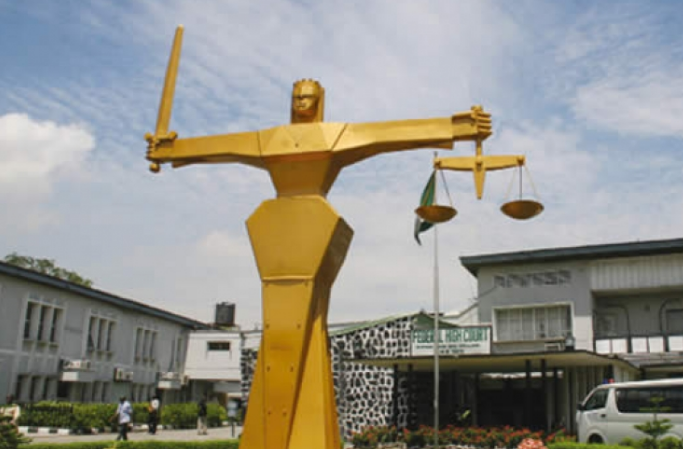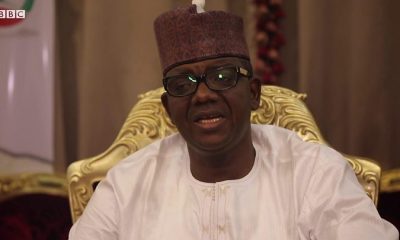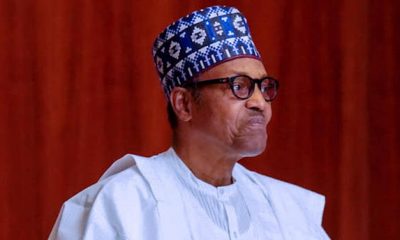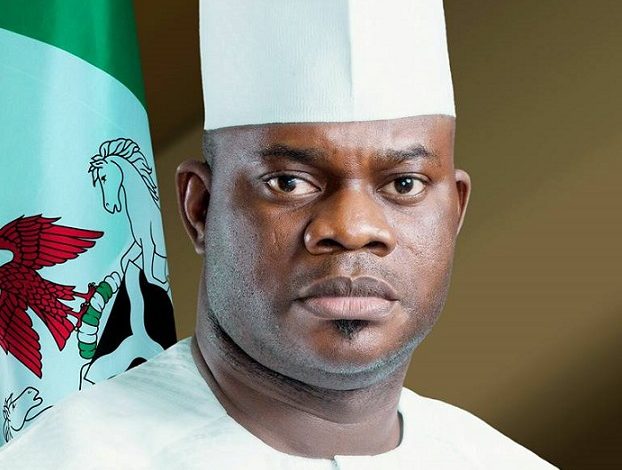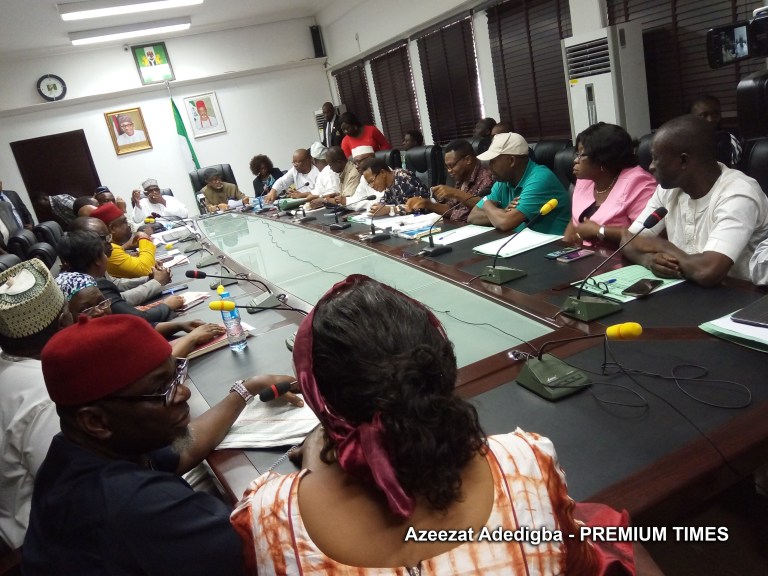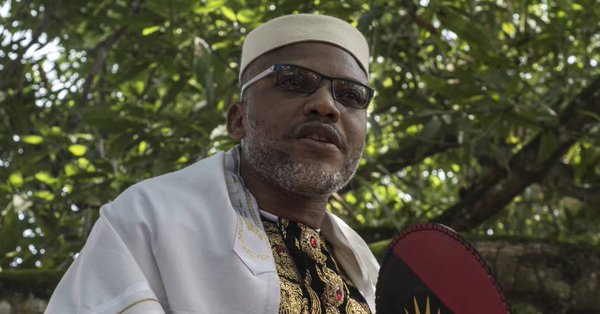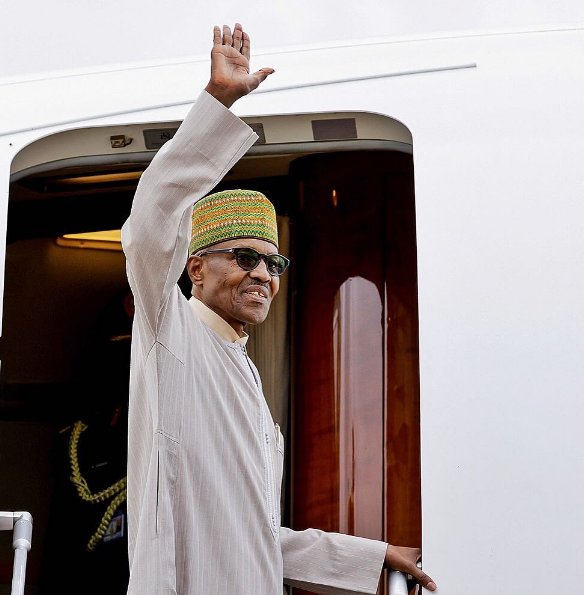NEWS
AGF Explains Why Arewa Youths Were Not Arrested

• Admits shallow investigations played a role in dismissal of corruption cases
• Sets up unit to improve probes, prosecution of cases
Alex Enumah in Abuja
Following accusations of bias, the Attorney General of the Federation (AGF) and Minister of Justice, Mr. Abubakar Malami (SAN), has proffered a reason as to why the proponents of the quit notice to Nigerians of South-east extraction residing in the Northern part of the country were not arrested.
Speaking in Abuja Tuesday, Malami said the government resisted pressure to go after leaders of the Arewa Youth Consultative Forum after it gave due consideration to the security implications of arresting them.
Malami has come under attack in recent days over his request to the court to withdraw the bail conditions granted to the leader of the Indigenous People of Biafra (IPOB), Nnamdi Kanu, while ignoring the antics and divisive remarks made by the Arewa youths, even though they were later to rescind their eviction notice.
The AGF, however, said the government would not hesitate to wield the big stick against anyone or group found to have engaged in any form of lawlessness in any part of the country.
According to him, “Government considered the security implications on the issue. Let me state that government is alive to its responsibility and whoever is found wanting will be prosecuted. This administration is determined to provide good governance and promote justice, peace and fairness.”
Malami spoke on the issue shortly after he established an investigation unit in his ministry, with the mandate to investigate “sensitive and important cases”.
He blamed the rift between himself and the acting Chairman of the Economic and Financial Crimes Commission (EFCC), Mr. Ibrahim Magu, over prosecution of high profile cases on negative media reports.
He admitted, nonetheless, that shallow investigations were a major reason some cases were thrown out by the courts.
He said the new unit that was established in the Ministry of Justice would henceforth “coordinate and form part of every investigation in Nigeria”, adding that the move had become necessary in view of apparent lack of “legal expertise in the conduct and process of investigations by the various security agencies in Nigeria”.
Malami pointed out that the new unit would address the anomalies that not only led to frequent losses at the courts by the prosecuting agencies but equally the “consistent rejection of vital/relevant evidence in the course of prosecution”.
He, however, declined to specify the agencies whose pending court cases would likely be taken over by the new unit.
Malami said: “Consequent upon want of expertise in the conduct and process of investigations by various security agencies in Nigeria and the need to address such anomalies leading to consistent rejection of vital/relevant evidence in the course of prosecution and or the writing down of the probative value of such evidence owing to inappropriate investigation, my office as a result, and in line with the constitutional powers conferred on me as the Chief Law Officer of the Federation and by virtue of section 105(1) and (3) of the Administration of Criminal Justice Act, hereby deems it fit to establish an Investigation Unit within the ministry.
“This unit shall coordinate and form part of every investigation in Nigeria for robust investigation and successful prosecution of such cases.”
He said the core function/mandate of the unit would equally involve giving advice beforehand to every security agency carrying out an investigation on the best lawful and admissible means of such investigation for effective prosecution thereafter.
Other than the EFCC, other prosecuting agencies directly under the AGF’s supervision include the Independent Corrupt Practices and Other Related Offences Commission (ICPC), the Department of State Services (DSS), National Drugs Law Enforcement Agency (NDLEA), National Agency for the Prohibition of Traffic in Person (NAPTIP), and the Nigerian Police Force (NPF).
The AGF said his ministry successfully concluded a total of 296 terrorism cases within the period of 2015 and 2016, while a total of 6,646 criminal cases ranging from oil theft, culpable homicide, rape, armed robbery, unlawful possession of arms and murder, among others, were equally concluded.
Malami added that the government has commenced the profiling of over 1,000 suspected Boko Haram members, including those that are either in custody and those whose case files were left unprosecuted.
He maintained that despite the numerous challenges facing the ministry, such as prolonged and inconclusive investigations by law enforcement agencies, lack of funds to sponsor witnesses to court, delays in mobilising prosecutors, delays in the production of case files to his office by law enforcement agencies, officers in the Department of Public Prosecution (DPP) were able to secure commendable convictions.
Malami said his ministry was working on securing the approval of the Federal Executive Council (FEC) for the installation and implementation of a state-of-the-art modern Virtual Automated Case Management System (V-ACMS) in order to incorporate an online up-to-date integrated biometric prisoner information database that would strengthen the operations of the federal justice sector institutions and eliminate bottlenecks in the administration of criminal justice system in the country.
He decried the high number of awaiting trial inmates in Nigeria, saying it was the major reason the prisons are constantly overcrowded.
He said the government was working on modalities to reduce the population of awaiting trial inmates in the country, adding that the committee on the prerogative of mercy will consider and recommend inmates qualified to be granted state pardons.
Besides, the AGF revealed that the judgment debt profile of the ministry stood at N113 billion last year, a situation he said necessitated the re-establishment of the Judgment Department Verification Committee to assist in reducing the quantum of the debt against the federal government by reaching a compromise with judgment-creditors on modalities and payment of such debt.
The AGF further disclosed that the government was determined to recover about $15 million that was seized by the South African government under the Goodluck Jonathan administration, blaming the delay in the recovery of the money on cumbersome legal procedures between Nigeria and South Africa. SOURSE : Thisdaylive.com





